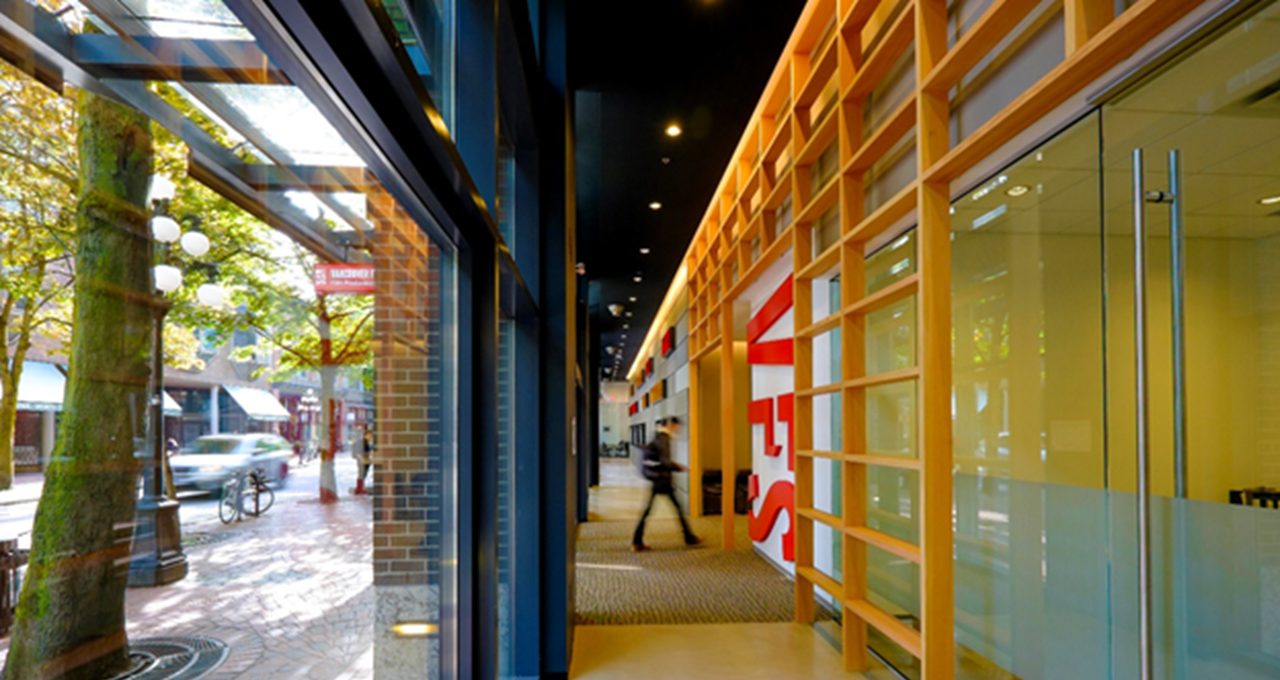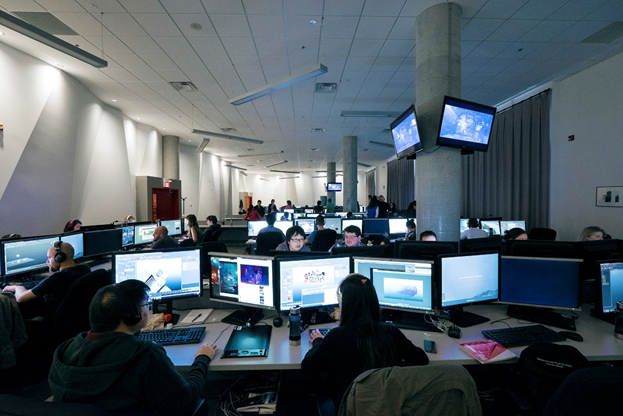From animated shorts and video games to feature-length films, students at the Vancouver Film School create over 900 productions a year. This immersion into real-world production is a big reason why VFS is one of the most distinguished entertainment arts schools in the world.
The school’s eight campuses offer full film sets and studio spaces, screening rooms, theaters and a 280-degree green screen room with full performance capture facilities. To run its fast-paced production environments, it uses NVIDIA Quadro RTX 5000 GPUs.
With these cards powering Dell Precision 5820 workstations, VFS can provide students with the tools and technology they need to become professionals in entertainment and creative media arts.
Advanced Capabilities for an Acclaimed School
VFS alumni are some of the most sought-after artists, creators and storytellers in the film and television industries. They’ve worked on feature films ranging from the Marvel Cinematic Universe to the Star Wars franchise, and television shows from Game of Thrones to Lost In Space.
Last year, VFS grads were credited on 17 of the 20 highest grossing films worldwide, including Joker, Captain Marvel and Avengers: Endgame. And they worked on six of the world’s 10 best-selling video games, in a global industry that is set to generate $2.3 trillion in revenue this year.
VFS constantly adapts its curriculum to meet the rapid changes in the industry. With NVIDIA RTX, VFS is providing its students with the latest tools that industry professionals use today. By selecting the same computing platforms found in the world’s most advanced film, television, VFX, games and animation studios, VFS gives students maximum performance and productivity with the highest degree of reliability.
NVIDIA Quadro-powered Dell Precision Workstations are designed with enterprise-class components and stable drivers, and undergo extensive testing and software certifications. Recent advances in software improve stability and memory usage, and power new features that take specific advantage of NVIDIA RTX technology to improve performance by orders of magnitude. A built-in feature, Dell Optimizer for Precision, helped the school examine system performance metrics to identify and remove bottlenecks while improving render times.
To provide maximum flexibility, VFS selected NVIDIA Quadro RTX 5000 cards featuring 16GB of GPU memory, which allows students to work with much larger, complex datasets. Multiple applications can run simultaneously at full speed. Tasks like real-time ray tracing are now standard features on NVIDIA Quadro graphics cards, making them readily available for the students to use.
Top Performance for Any Workflow, Anywhere
When the pandemic occurred, VFS needed to quickly create a remote learning environment and improve remote production capacity for film, animation, game design and VR. Arranging remote workstations was made possible by using Teradici with VFS’s new Dell Precision workstations, providing students with low-latency access to the full performance of the workstations. Students also used Wacom tablets remotely with all of their favorite applications.
“Our ability to teach Unreal Engine remotely is an order of magnitude simpler with the NVIDIA Quadro RTX GPUs,” said Evan Biswanger, creative director at VFS. “On our previous graphics cards, our higher-end Unreal work had the GPU and CPU of our machines pegged at 100 percent. Now we have room to spare, so we can do a lot more.”
In addition to dramatically increasing render speeds using creative applications like Redshift, Autodesk Arnold, Unreal and Unity, VFS saw an opportunity to significantly improve transcoding speeds for RED 6K footage. VFS uses Avid Media Composer for video editing and Blackmagic’s DaVinci Resolve for color correction and online finishing.
With DaVinci Resolve’s new Neural Engine, VFS students benefit from many new AI and NVIDIA RTX-accelerated creative tools. VFS also shoots 360-degree video using high frame rates to create ultra-smooth VR experiences.
It’s not just films and television that are getting a huge boost from RTX. The gaming faculty at VFS is also experiencing a shift in the industry. Advanced ray tracing provides realistic lighting, reflections and ambient occlusion that’s creating a visual fidelity previously only possible in offline rendering.
Working with real-time ray tracing in the game design pipeline gives students much more time to focus on the artistic aspects of game development rather than creating technical workarounds to achieve low-quality graphics. Real-time ray tracing helps VFS enhance gaming experiences by creating dynamic worlds where players don’t feel a disconnect between the media and real life anymore.
Learn more about working remotely with NVIDIA RTX, Dell Precision workstations, and Vancouver Film School, an official member of the NVIDIA Studio Education Partner Program.


